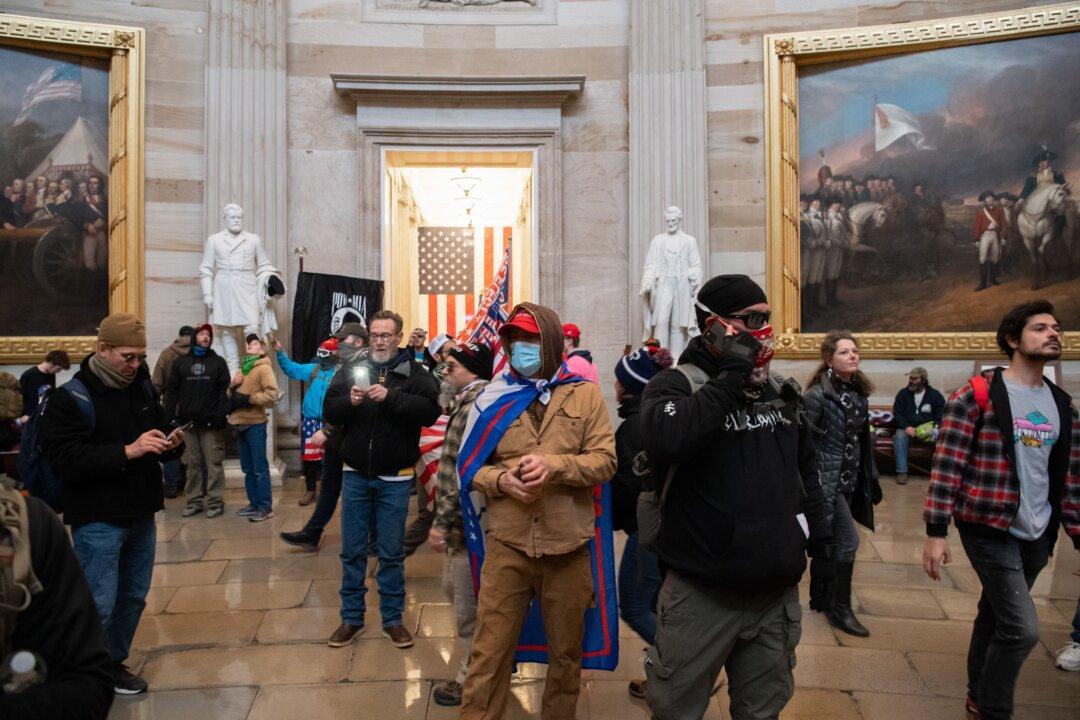Two high-profile conservative legal activists claim the Department of Justice (DOJ) is using a double standard in its treatment of those detained regarding the Jan. 6 breach of the Capitol, compared to those who were arrested during the rioting following the death of George Floyd in Minneapolis in 2020.
More than 500 individuals have been arrested by federal authorities and charged with multiple serious offenses in connection with the events of Jan. 6, dozens of whom remain in jail awaiting trial.





